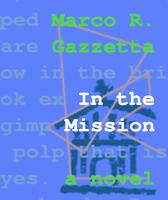Writing In the Mission (4: Mystery)
Happy to have finished yet another novel, this time I felt confident enough that I sent it to a series of friends and acquaintances for feedback. I sent out about 12 copies, and waited for feedback. To my horror, 8 didn’t respond at all, even after prodding and asking – I assumed they had hated it so much, they wouldn’t even want to talk about it. 4 of my readers, though, came back with enthusiastic feedback and I was a little puzzled. In hindsight, the 8 that didn’t respond probably never read the book and felt bad about letting me down (at least I like to think so). Reminder to oneself: if you can’t follow through, say so; if you don’t say anything, the other side has nothing to go by and will assume the worst. Or, in other words, the worst form of communication is silence.
While the feedback was more or less enthusiastic, my test readers revealed a series of flaws that gave me pause. The most important one, in hindsight, was the Name of the Rose effect. That’s what I experienced when I read the book, The Name of the Rose by Umberto Eco. A fantastic mystery novel, it pushes you forward, wondering what’s going to happen next – until the moment where the mystery is revealed, a fire breaks out, and we all want to know who lives and who dies in the fire.
Well, Umberto Eco decided to put a list of all the invaluable books that perished in the fire in that final part. There are pages and pages of books listed, things that we lost over the millennia, things that we would love to have – but in that particular space, they don’t matter. We want to know if the hero lives on, if the villain dies. That same thing happened to me: the crucial part of the information, the most important revelation in the whole novel, was at the very end of the story – clobbering a passage that was otherwise devoted to our heroes.
I realized that this flaw was indicative of a larger issue: the story was gripping and interesting, but it didn’t really work to convey the hidden message of the book. I wanted people to realize the religion they know is not what the founder asked for, that it actually in certain respects turned into precisely what he reviled during his ministry. To do so, I couldn’t simply state a series of things, I had to make them part of a memorable ensemble. There had to be a reason why we needed to know those things.
Fortunately, I realized that I had created a vehicle, and that someone else had provided me with a driver. I just had to create a mystery that could only be solved by knowing the things I wanted to readers to ponder. Further, since it was all about the idea of changing one’s mind, there would be two different versions of the mystery: one that would be the solution for the common understanding of the Bible, and the other with a revised version.
It was easy to find out what would happen that made this adventure novel into a mystery: there were two characters that had gone underutilized in the original novel, and they were begging for more action. Dolores’s kids were waiting. I cast them in their roles, providing suspence and mystery, and that would work just perfectly. Who wouldn’t care about a nice, honest child being abducted?
But what would the mystery be? How would I fit the things I needed to say into a mystery framework? And, even worse, how could I make it into not one, but two mysteries based on the same clues?
This is where you realize that it took as much time to rewrite* In the Mission* as to write it the first time around. I spent countless hours researching the possible combinations and permutations of clues and things I needed to say. Sometimes, a clue would fall into my lap without any thinking at all. Some other times, though, I would be stumped at my computer, trying to figure out how to work these things into a fluid whole. It was real sweat, and I think the novel benefits from this additional work.
Now, In the Mission is a mystery/adventure novel about a child abduction. It didn’t use to be. I think the twist made it a compelling novel, one that interests and captivates, but also succeeds at conveying its message of change, of reform.
I love it so much, indeed, that I started writing its successor.
